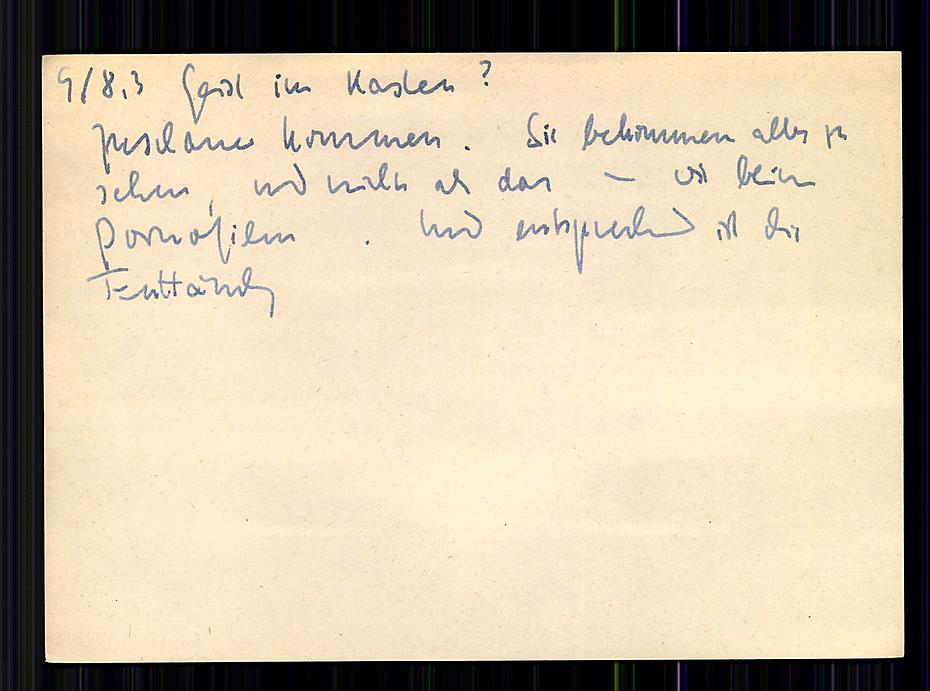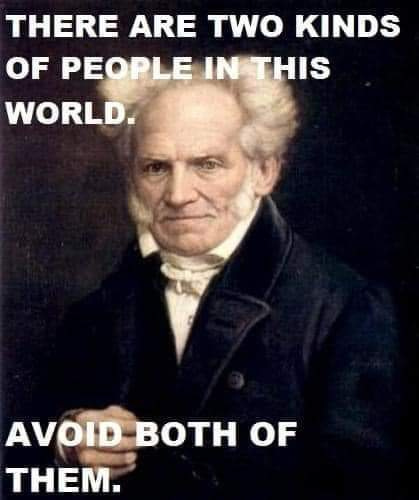The card index appeared to be simply what it was: a wooden box for paper slips. On one of these file cards, Luhmann once summarized his own reflections on just such an experience: ‘People come, they see everything and nothing more than that, just like in porn movies; consequently, they leave disappointed’ (Figure 1).8
- Cf. Schmidt, ‘Luhmanns Zettelkasten’, 7. The heading of this file card is formulated in form of a question: ‘Geist im Kasten?’ (‘Does Spirit hide in the filing cabinet?’). Obviously, the answer is no. Many thanks to Johannes Schmidt for providing the image of this file card.
In a zettel in his system entitled "Does Spirit hide in the filing cabinet", Niklas Luhmann wrote the note: "People come, they see everything and nothing more than that, just like in porn movies; consequently, they leave disappointed." This is a telling story about the simplicity of the idea of a slip box (zettelkasten, card catalog, or commonplace book).

It's also a testament to the fact that the value of it is in the upfront work that is required in making valuable notes and linking them. Many end up trying out the simple looking system and then wonder why it isn't working for them. The answer is that they're not working for it.
